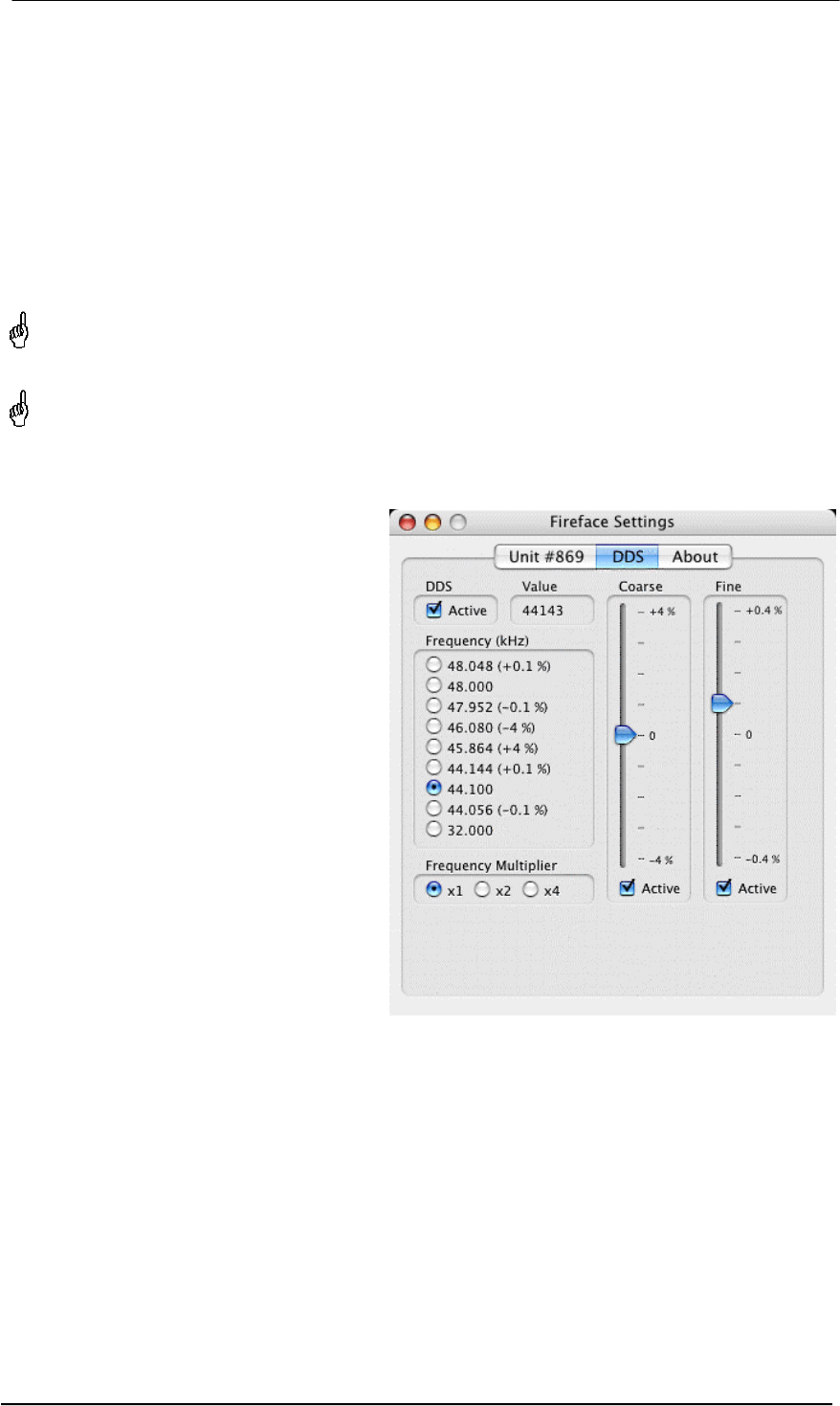
User's Guide Fireface 800 © RME
45
22.2 Settings dialog - DDS
Usually soundcards and audio interfaces generate their internal clock (master mode) by a
quartz. Therefore the internal clock can be set to 44.1 kHz or 48 kHz, but not to a value in be-
tween. SteadyClock, RME's sensational Low Jitter Clock System is based on a Direct Digital
Synthesizer (DDS). This superior circuitry can generate nearly any frequency with highest pre-
cision.
DDS has been implemented into the Fireface with regard to the needs of professional video
applications, as well as to maximum flexibility. The dialog DDS includes both a list of typical
video frequencies (so called pull up/pull down at 0.1% and 4%) and two faders, which allow to
freely change the basic sample rate in steps of 1 Hz (!).
The DDS dialog requires the Fireface to be in clock mode Master! The frequency setting will
only be applied this one specific Fireface!
Changing the sample rate in bigger steps during record/playback often results in a loss of
audio, or brings up warning messages of the audio software. Therefore the desired sample
rate should be set at least coarsely before starting the software.
DDS
Activates all settings of this dialog.
Value
Shows the sample rate as adjusted in this
dialog. The sample rate is defined by the
basic setting (Frequency), the multiplier,
and the position of the activated fader.
Frequency
Sets a fixed basic sample rate, which can
be modified by multiplier and fader.
Freq. Multiplier
Changes the basic sample rate into Sin-
gle, Double oder Quad Speed mode.
Coarse
Fader for coarse modification of the basic
sample rate. Click Active to activate it.
Minimum step size 1 Hz.
Fine
Fader for fine modification of the basic
sample rate. Click Active to activate it.
Minimum step size 1 Hz.
Notes on the faders
A mouse click within the fader area, above or below the fader know, will move the fader with the
smallest step size up or down. Holding the Ctrl key while clicking will cause the fader to jump to
its center (0).


















